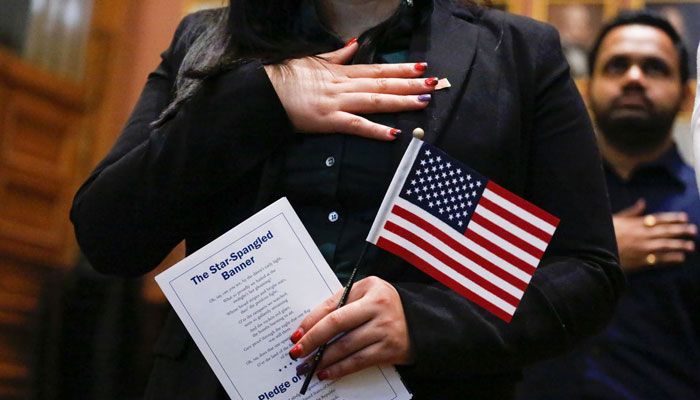Upcoming US citizenship test puts immigrants' English skills to the test
New proposed changes to US citizenship test raise concerns for immigrants with limited English skills
July 06, 2023

The US citizenship test is getting updated, and this has caused worries for immigrants with lower English proficiency.
The new version, expected to be released next year, proposes adding a speaking section to assess English skills, according to The Associated Press. This has raised concerns as it may make the test more stressful for those who struggle with English.
Heaven Mehreta, an Ethiopian immigrant who recently became a US citizen, expressed her concerns: "For me, I think it would be harder to look at pictures and explain them...pronunciation was very difficult for me when I learned English."
Shai Avny, who became a US citizen last year, also worries about the new speaking section, saying: "Sitting next to someone from the federal government, it can be intimidating to talk and speak with them. Some people have this fear anyway. When it’s not your first language, it can be even more difficult. Maybe you will be nervous and you won’t find the words to tell them what you need to describe. It’s a test that will determine if you are going to be a citizen. So there is a lot to lose."
In addition to the speaking section, the proposed changes include making the civics section multiple-choice instead of oral short-answer. This means applicants must know all the wars fought by the US in the 1900s to select the correct answer. Lynne Weintraub, a citizenship coordinator, believes this could make the test harder for people who struggle with English literacy, including refugees, elderly immigrants, and those with disabilities.
The US Citizenship and Immigration Services (USCIS) argue that the changes "reflect current best practices in test design" and will help standardise the citizenship test. However, some believe these changes could make the test easier, including Elizabeth Jacobs from the Center for Immigration Studies who prefers a stricter test to ensure new citizens integrate better into American society.
There will be a nationwide trial of the proposed changes in 2023, and an external group of experts will review the results before implementing them, potentially by late next year.
The debate over the new changes has led to questions about the importance of a civics test in the first place. Corleen Smith from the International Institute of Minnesota wonders if it is necessary to know history and government facts to become a citizen, saying, "People that were born in the US and are natural-born citizens — a lot of those folks don’t know many of these answers to the history of government questions."
The concern is that the revised citizenship test may create barriers for immigrants with limited English skills, making it harder for them to become US citizens. As the USCIS moves forward with the changes, advocates and immigrants hope for a balanced approach that ensures a fair and accessible process for all.









